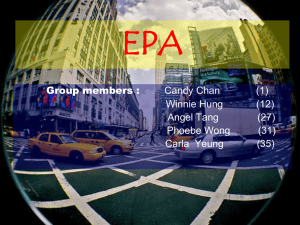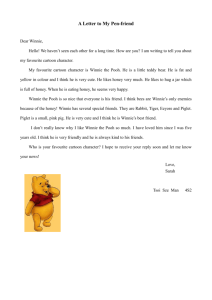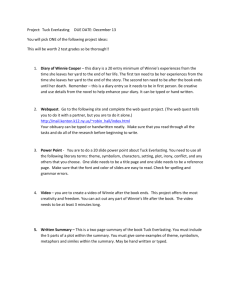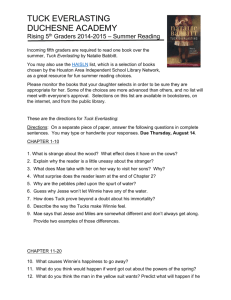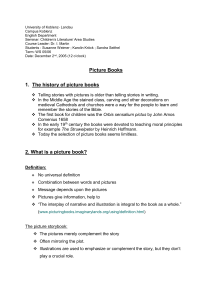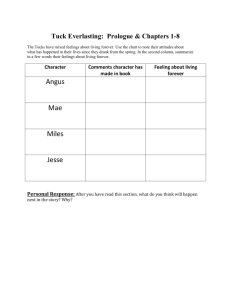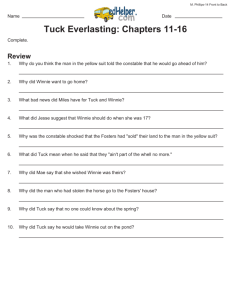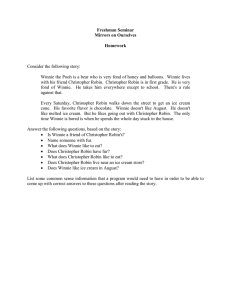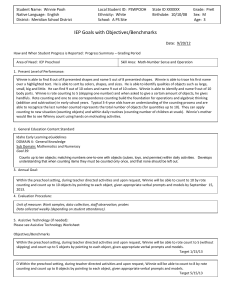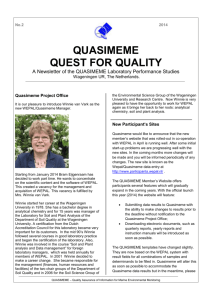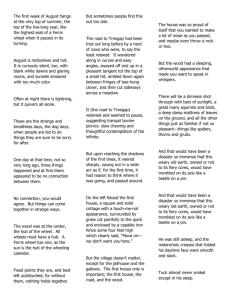CONTEXT DATA COLLECTION PROCEDURE
advertisement
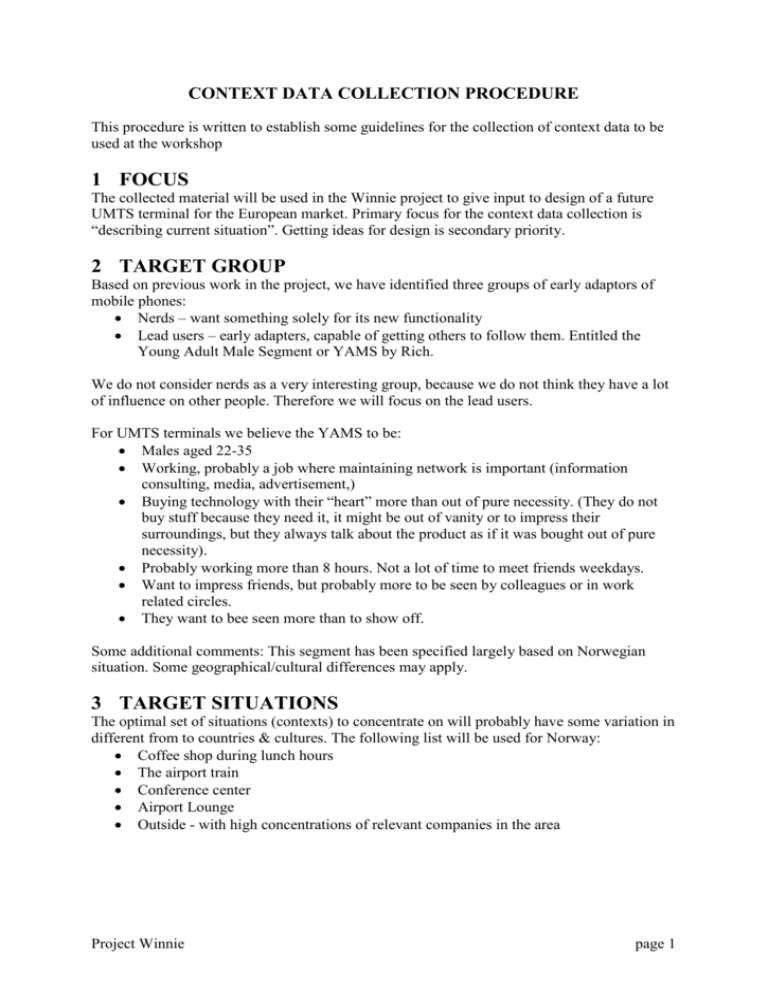
CONTEXT DATA COLLECTION PROCEDURE This procedure is written to establish some guidelines for the collection of context data to be used at the workshop 1 FOCUS The collected material will be used in the Winnie project to give input to design of a future UMTS terminal for the European market. Primary focus for the context data collection is “describing current situation”. Getting ideas for design is secondary priority. 2 TARGET GROUP Based on previous work in the project, we have identified three groups of early adaptors of mobile phones: Nerds – want something solely for its new functionality Lead users – early adapters, capable of getting others to follow them. Entitled the Young Adult Male Segment or YAMS by Rich. We do not consider nerds as a very interesting group, because we do not think they have a lot of influence on other people. Therefore we will focus on the lead users. For UMTS terminals we believe the YAMS to be: Males aged 22-35 Working, probably a job where maintaining network is important (information consulting, media, advertisement,) Buying technology with their “heart” more than out of pure necessity. (They do not buy stuff because they need it, it might be out of vanity or to impress their surroundings, but they always talk about the product as if it was bought out of pure necessity). Probably working more than 8 hours. Not a lot of time to meet friends weekdays. Want to impress friends, but probably more to be seen by colleagues or in work related circles. They want to bee seen more than to show off. Some additional comments: This segment has been specified largely based on Norwegian situation. Some geographical/cultural differences may apply. 3 TARGET SITUATIONS The optimal set of situations (contexts) to concentrate on will probably have some variation in different from to countries & cultures. The following list will be used for Norway: Coffee shop during lunch hours The airport train Conference center Airport Lounge Outside - with high concentrations of relevant companies in the area Project Winnie page 1 4 Method outline The information gathering will take 1 ½ day. You will spend: ½ day at location X ½ day at location Y ½ day at location Z The method used will be contextual inquiry. This is basically a structured field interviewing method, based on a few core principles that differentiate this method from plain, journalistic interviewing. Contextual inquiry is more a discovery process than an evaluative process; more like learning than testing. In each location your job is to watch. Try to watch people from the target group, and take notes of what they do. Try documenting what some people do on video or with a camera. Pay extra attention to what’s done before, during and after the persons are communicating (with or without the use of technology). If you discover something interesting, try to get in touch with the person after she has finished what she was doing, and start an informal dialogue. What you need to know is the following: What was she doing? Why was she doing it? Was she solving a problem? In that case what kind of problem was she solving? What need instansiated the action she did? What kind of technology did she use in this situation? 4.1 INPUT TO DATA COLLECTION The following list can be used as input to the data collection: Category General description of situation People Tasks Motivation Communication Tools Social info Comments people, buildings, location, time of day, how long do they stay Are the people at the present location/situation representatives for the specified user group? what do people do here, what is their main focus here, personal or job tasks?, main focus of attention, why do people come here, why do they do what they do here how do people communicate, frequencies, What tools do people use (electronic and non-e) in the situation Social organization, groups, inter-group communication, what is main focus in the process of establishing social structures at the site, Data may be supplemented with conclusions and ideas relevant to the project. Project Winnie page 2 4.2 VIDEO RECORDING The recording of video in context may be a bit problematic. We suggest the following procedure: Step1 – Take some general shots showing the situations and area with little focus on individuals and tasks. Step 2 – If possible, get material describing tasks, people or other interesting details in the situation. If possible it is advisable to supplement video footage with still photos if possible. UPDATED 050901 Harald Stegavik Project Winnie page 3
